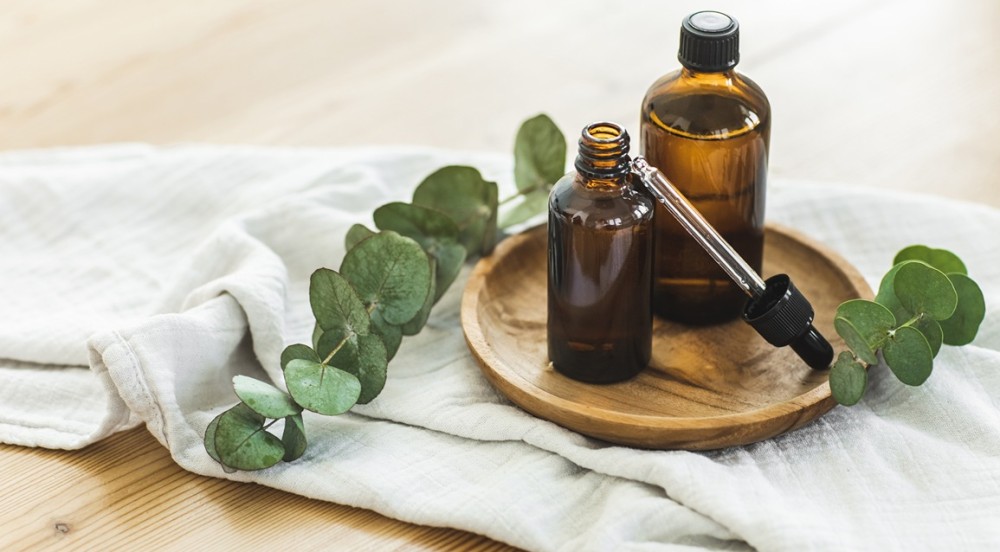- Empty cart.
- Continue Shopping
The Benefits of Aromatherapy for Relaxation

Aromatherapy has been used for centuries as a holistic approach to promote relaxation, alleviate stress, and improve overall well-being. This ancient practice harnesses the power of essential oils to stimulate the senses and create a soothing environment.
What is Aromatherapy?
Aromatherapy is a therapeutic practice that involves the use of essential oils extracted from various plants, flowers, and herbs to promote health and well-being. These essential oils are highly concentrated and contain the aromatic compounds that give each plant its unique scent and therapeutic properties.
How Aromatherapy Works
Aromatherapy works by stimulating the olfactory system, which is responsible for our sense of smell. When essential oils are inhaled or applied to the skin, they interact with the limbic system in the brain, which plays a key role in regulating emotions and memory. This interaction can trigger various responses in the body, leading to relaxation and stress reduction.
The Benefits of Aromatherapy for Relaxation
1. Stress Reduction
One of the most well-known benefits of aromatherapy is its ability to reduce stress and anxiety. Essential oils such as lavender, chamomile, and frankincense are known for their calming properties. Inhaling these oils or using them in a diffuser can help lower cortisol levels, the stress hormone, and induce a sense of calm and relaxation.
2. Improved Sleep Quality
Many people struggle with sleep disorders or poor sleep quality, which can negatively impact their overall well-being. Aromatherapy can be a natural solution to this problem. Essential oils like lavender and cedarwood are renowned for their sleep-inducing properties. Diffusing these oils in the bedroom or adding a few drops to your pillow can promote a more restful night’s sleep.
3. Mood Enhancement
Aromatherapy has the power to lift your spirits and enhance your mood. Citrus essential oils like lemon and orange are known for their uplifting and invigorating scents. Inhaling these oils can boost serotonin levels in the brain, helping to combat feelings of sadness and depression.
4. Pain Relief
Aromatherapy can also be used as a complementary approach to pain management. Essential oils like eucalyptus and peppermint have analgesic properties that can provide relief from headaches, muscle aches, and joint pain when applied topically or used in massage therapy.
5. Stress-Free Relaxation
In today’s fast-paced world, finding time for relaxation is essential for maintaining overall well-being. Aromatherapy offers a convenient and effective way to relax and unwind. Whether you’re using essential oils in a diffuser, taking a fragrant bath, or receiving an aromatherapy massage, the calming scents can transport you to a state of tranquility.
6. Enhanced Focus and Concentration
Aromatherapy is not just about relaxation; it can also help improve focus and concentration. Essential oils like rosemary and peppermint have been shown to enhance cognitive function and mental clarity. Inhaling these oils while studying or working can boost productivity and mental alertness.
7. Immune System Support
Certain essential oils possess antibacterial and antiviral properties that can help strengthen the immune system. Oils like tea tree and eucalyptus can be diffused in the home to purify the air and prevent the spread of airborne pathogens, promoting a healthier living environment.
8. All-Natural Stress Relief
Aromatherapy offers a natural and non-invasive way to manage stress and improve overall well-being. Unlike some pharmaceutical solutions, aromatherapy does not have the risk of side effects or dependency. It is a safe and gentle option for people of all ages.
How to Incorporate Aromatherapy into Your Routine
Incorporating aromatherapy into your daily routine is easy and can be customized to suit your preferences. Here are some popular methods for using essential oils:
1. Aromatherapy Diffusers
Aromatherapy diffusers are devices that disperse essential oils into the air, creating a fragrant and therapeutic atmosphere. Simply add a few drops of your chosen essential oil to the diffuser, and let it work its magic. This is an excellent way to enjoy aromatherapy in your home or office.
2. Topical Application
Some essential oils can be applied directly to the skin when diluted with a carrier oil, such as jojoba or coconut oil. This method is commonly used in massage therapy or as a part of skincare routines. Be sure to follow proper dilution guidelines to avoid skin irritation.
3. Bathing
Adding a few drops of your favorite essential oil to a warm bath can create a spa-like experience in the comfort of your own home. Not only does this promote relaxation, but it also allows the essential oils to be absorbed through your skin.
4. Aromatherapy Jewelry
Aromatherapy jewelry, such as diffuser necklaces or bracelets, allows you to carry the benefits of essential oils with you throughout the day. These accessories have small compartments where you can place a cotton pad or a porous stone infused with your chosen oil.
5. Inhalation
Direct inhalation involves placing a few drops of essential oil on a tissue or handkerchief and inhaling the aroma. This method is convenient and can be used discreetly when needed to reduce stress or anxiety.
Choosing the Right Essential Oils
Selecting the right essential oils is essential to achieving the desired aromatherapy benefits. Here are some popular essential oils and their associated benefits:
- Lavender: Known for its calming and soothing properties, lavender is excellent for reducing stress and improving sleep quality.
- Peppermint: Peppermint oil is invigorating and can help enhance focus and relieve headaches.
- Eucalyptus: Eucalyptus oil is often used for respiratory support and pain relief.
- Lemon: Lemon oil is refreshing and uplifting, making it a great choice for mood enhancement.
- Chamomile: Chamomile oil is gentle and calming, making it suitable for relaxation and reducing anxiety.
- Frankincense: Frankincense is known for its spiritual and grounding qualities and is often used for meditation and stress relief.
- Tea Tree: Tea tree oil has antibacterial and antiviral properties, making it useful for immune system support and purifying the air.
Safety Considerations
While aromatherapy is generally safe, it’s essential to use essential oils with care and follow safety guidelines:
- Dilution: Always dilute essential oils with a carrier oil before applying them to the skin to prevent irritation.
- Patch Test: Perform a patch test on a small area of skin to ensure you don’t have an allergic reaction to the oil.
- Consultation: If you have any underlying health conditions or are pregnant, consult with a qualified aromatherapist or healthcare professional before using essential oils.
- Storage: Store essential oils in a cool, dark place away from direct sunlight and out of the reach of children.
In Conclusion, Aromatherapy is a versatile and effective way to promote relaxation and improve overall well-being. Whether you’re seeking stress reduction, better sleep, mood enhancement, or pain relief, essential oils can provide a natural and holistic solution. By incorporating aromatherapy into your daily routine, you can harness the power of nature’s scents to achieve a state of tranquility and balance in your life. So, why not give it a try and experience the benefits of aromatherapy for yourself? Your body and mind will thank you for it.








